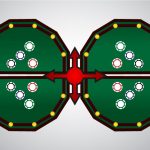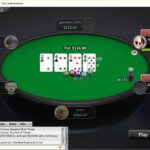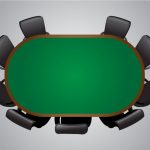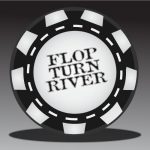I have been thinking a lot lately on self-analysis and focusing on what I need to do to become a better, more profitable player. Tournament play is a very results oriented business and the internet ranking systems and idolization that follows from it make this pervasive focus on results even more stringent. While I wouldn’t mind my internet dong getting sucked a little, I have come to realize and accept that my lack of volume means it just ain’t gonna happen for me. However, I also realize that just because I don’t have the same results as high volume players does not mean that I am not as high a caliber of player as they are.
I think in general there are three categories of players out there:
1) Our lovable, needable, idiots – these are players who are either playing for fun, or are new to the game, or perhaps are prone to tilt. They make obvious mistakes and play hands suboptimally.
2) Second-tier, break-even to proficient players – these are players who have obtained firm grasp on the fundamentals of the game. They understand how to make accurate guesstimations of their opponents’ ranges based on position, stack sizes, and previous play. They understand push/fold poker and know how their hand plays against their opponents’ ranges. They understand fold equity, and know how to steal and resteal. They might make some minor errors or "spewy" plays, but their mistakes tend to be on the aggressive side. Many of the top-ranked players are actually in this category and can make quite a bit of money based on sheer volume alone (i.e. there are guys out there with just a 10% ROI who are making $100k/year because through sheer volume they are playing in $1 million worth of tourney entries).
3) The top-tier, first rate, cream of the crop players – these are players who know the game really well. They quickly recognize stack sizes, position, hand values, and know their opponents’ tendencies. They make no errors when it comes to push/fold, restealing, 3-betting light, or calling shoves. They think at least one move ahead and understand how to size their bets so that they can control the size of the pot and know what they will do in response to any possible move an opponent may make. They do not let prior bad beats affect them and can focus on each hand as it comes.
So what’s the difference between a top-tier and a 2nd-tier player? The difference between being a top-tier player and a 2nd-tier player is not just playing mistake free poker. The biggest difference is that top-tier players ADJUST their play based on what their opponents are doing. 2nd-tier players often develop a "style" of play that works for them and then just stick to it. For example, late in a tourney a 2nd-tier player in the BB might 3-bet a button raise as a total bluff because he knows that in general a player on the button late in the tournament will try and steal the blinds by raising. However, if this particular button has only attempted to steal the blinds once out of the last 15 attempts, then this 3-bet which generally would be a great play suddenly becomes spew. A top-tier player recognizes that, a 2nd-tier player does not.
Because top-tier players adjust their game depending on how their opponents are playing, they also know how to and will use every single possible play available to them if the situation is correct. Thus while a 2nd-tier player might say that you should "never open-limp hands late in a tourney" or that "you should never minraise," a top-tier player understands that if the situation is right an open-limp or a minraise might actually be the best play.
So what do you need to do to become a top-tier player? I don’t think I am quite there yet, so I can’t tell you for sure, but I think the first step is to check your ego at the door and determine where you currently stand. If you’re a beginning player, you need to play a lot, ask a lot of questions, and just learn the basics. You need to give yourself the time to become a proficient 2nd-tier player. This is a lengthy time commitment – it takes time to truly understand stack sizes, position, hand values, hand ranges, fold equity, aggression, steals, resteals, etc. Once you do reach this level, the next step is to again drop your ego and realize that you can get even better. Not only do you need to play mistake-free poker but you then need to expand your game so that you are playing not just your cards, your position, and your stacksizes, but you are also playing your player as well. I hope to be there soon.
Submit your review | |









